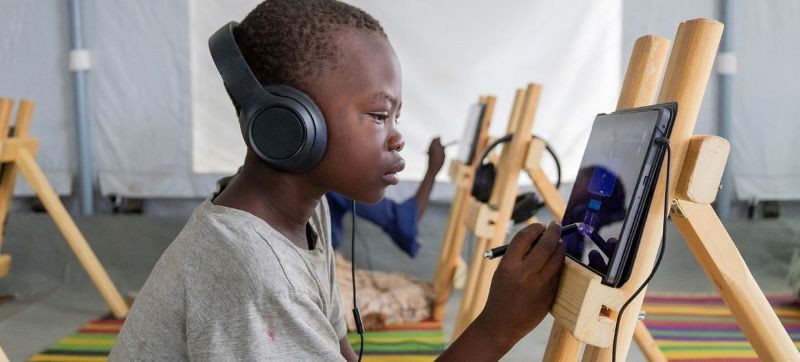 Artificial Intelligence
Artificial Intelligence
UN chief Antonio Guterres wants global education to integrate AI centred on humanity
Marking the International Day of Education, UN Secretary-General António Guterres has emphasized learning as a basic human right and foundation for individual and societal growth.
His message highlighted the dual nature of technological advances such as Artificial Intelligence (AI), which offer immense potential – but also pose considerable risks.
“Education is an essential building block for every person to reach their full potential, and for societies and economies to grow and flourish”, Mr. Guterres said.
AI promise and risks
The UN chief stressed that AI and other tech innovations can significantly aid students and teachers by providing wider access to information and advanced learning tools.
“But the tremendous rewards are matched by some daunting risks. As AI-driven systems become more powerful, human intention and machine-driven impacts can easily misalign”, he added.
This year, the UN education and culture agency, UNESCO, is dedicating the Day to the opportunities and challenges of AI.
Director-General Audrey Azoulay called for more investment in training both teachers and students so it can be used responsibly.
“AI offers major opportunities, provided that its deployment in schools is guided by clear ethical principles. To reach its full potential, this technology must complement the human and social dimensions of learning, rather than replace them.”, Mr. Azoulay said.
Human rights at the heart of AI
Stressing that this year’s day reminds us that unlocking the AI’s potential “depends on keeping human agency – and human rights – at the heart of this rapidly evolving technology”, the UN Secretary-General called for guarantees that all users have the right tools and knowledge to “use this technology smartly, safely and ethically”.
UNESCO’s Competency Frameworks to support learners and teachers as they incorporate AI into their learning, and the recently adopted Global Digital Compact, are expected to help ensure humanity retains control over the development and governance of AI.
Concluding his message, Mr. Guterres called for a commitment to “keeping humanity at the centre of education systems, everywhere”.
Divisions over AI
As AI becomes more integrated into education, countries remain divided on its use. According to UNESCO’s latest data, in high-income nations, over two-thirds of secondary school students are already leveraging generative AI tools to support their schoolwork.
However, a significant challenge remains with education professionals still lacking clear guidelines.
A UNESCO survey conducted in May 2023, covering 450 educational institutions, revealed that only 10 per cent of schools and universities have an official framework for AI use.
Simultaneously, an increasing number of countries are imposing restrictions on new technologies in the classroom. New data from UNESCO indicates that nearly 40 per cent of nations now have laws or policies banning mobile phones in schools, a notable rise from 24 per cent in July 2023.
For more insights, listen to the UN Special Rapporteur on the Right to Education, Farida Shaheed, who recently discussed the role of AI in schools and the challenges it brings in an interview with UN News.
Access to education
The International Day reminds us that access to high-quality education is a human right that not only greatly benefits individuals but also uplifts entire communities.
Millions of children, however, remain out of school due to a variety of factors including gender, location, social background or conflict.
Despite decades of educational progress and international commitments, according to UNESCO’s latest data, 250 million children and youth remain out of school worldwide.
Safe and inclusive
In a recent study, UNESCO reported that almost one in three learners has been physically attacked at least once during the school year and one in ten experiences cyberbullying.
With too many children across the world experiencing violence in and around schools, the impacts can be devastating – affecting the well-being, education outcomes and quality of life of students.
Support Our Journalism
We cannot do without you.. your contribution supports unbiased journalism
IBNS is not driven by any ism- not wokeism, not racism, not skewed secularism, not hyper right-wing or left liberal ideals, nor by any hardline religious beliefs or hyper nationalism. We want to serve you good old objective news, as they are. We do not judge or preach. We let people decide for themselves. We only try to present factual and well-sourced news.







